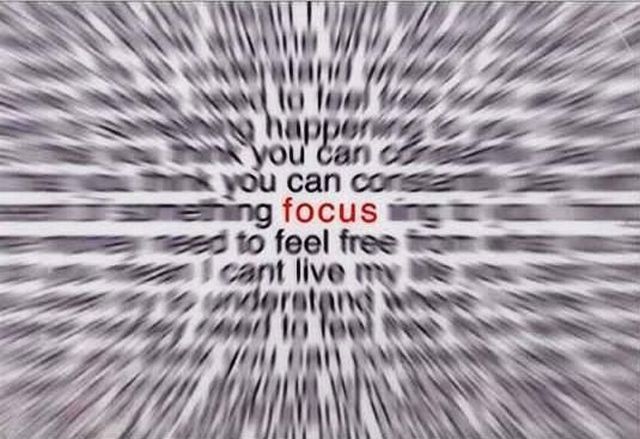I have problems with the sources you point to as educational.
My chosen sources tend to be pro or semi-pro audio, or even some of the more enlightened hifi engineers. People that are interested in real sound, not audiophoolery. I've been reading
Sound on Sound for years, I used to buy the magazine, but many of the other sites are sites that I have either discovered through HFV, or found on a surfing expedition that began here.
I find it hard to understand how a site that not only describes audio technology, but
ilustrates it with sound clips can be thought of as
not being educational. Hands up those who
know what quantisation error sounds like, and how dither corrects it! Hands up how many people
know how much they can reduce their bit depth before they
hear those errors? (Come on, folks: I bet foobar has a plugin, try it!)
[Yes, I know we have members who seriously and genuinely do know this stuff, including people who are or have been involved in audio engineering. Many of us, however, do not, and our subjectivity and mistaken "intuitive" knowledge may have have led us down paths that are quite wrong]
Now, hands up everyone who hears
something and
says, Ahh, thats quantisation ...or jitter. Come on, you can be honest: no-one is looking! :lol:
Me? I didn't have a clue, not really, until I listened to some if those examples there and elsewhere. I'm just passing on the results of my education.
You are spot on! There are many areas of noise and distortion in digital during read, during transmission and during conversion to analogue.
Jitter is well known these days
It's well known because so-called audiophiles love to "jitter" about it. It's a buzz word. OK, it's controversial, but depending on what you read, it is either a huge problem, or has not been a problem at all for a long time.
A lot of fuss is still made about jitter, but while it is potentially a serious issue it's rarely a practical problem these days simply because equipment designers and chip manufacturers have found very effective ways of both preventing it and dealing with it.
From the Sound-on-Sound link I gave above.
Written in 2008. Perhaps asynchronous USB has even further improved the situation, but was it that bad before? OK, any improvement can only be good.
Before the advent of this correction (and few others) I found digital reproduction unlistenable and would joke (but was serious) that digital systems harshness made my ears bleed.
My first "digital" records, digitally-mastered vinyl, were cold, dead, lifeless and horrible. Perhaps a function of the immature technology, and the inexperience of its users. That was a long time ago. Where I have both, I cannot think of a Vinyl that I prefer to the CD. Maybe early CDs were like the bad experience I had with digitally-mastered vinyl: I guess I didn't start buying them until they had been around for a while.
Unfortunately, it is often an unfair comparison, as some (or a lot of) remastering has been done. For a real test of vinyl vs digital, we must digitise our own vinyl, and then compare one with the other. My subjective opinion is that there is little or no difference, clicks, crackles, scratches and pops and all. For a less subjective opinion, see
here.
It is always funny (and sad) when I hear folks say "it's digital so it must be perfect".
Yes, that's bullshit (like printing "digital" on the box for a pair of cheap headphones) but this is the talk of the ignorant and the marketing departments.
Little realization that the implementation of digital (all the electronics) has so much room for error and distortion.
But why start off with the assumption that it will be bad? So that you have to buy expensive high-end kit? There's a test, online, where a modest soundcard is tested agains high-end studio gear: the results amaze. Well, they surprised me, as someone who tends to claim that one has to spend eight or even sixteen thousand on a "decent" soundcard

!
And digital systems still can't equal the sound quality of a decent analogue based system. Yes, analogue has its own set of pitfalls. But analogue based sytems still convey a truer more satisfying sense of a musical event.
Purely your subjective opinion. You're entitled to that: analogue is a different experience. In some ways I miss it.
For everyone who says this, there will be people who say the opposite. Whatever: best we just choose which we like!
Recently, I obtained a digital (from CD) copy of a vinyl album I'd digitised. At first, I didn't like it so much. Then I started listening to the detail in it, and I was hooked.
An external dac is a far better choice than a sound card. You have better isolation of sensitive dac circuitry from the cheap pc power supply and all the RF and other electrical noise from the PC components.
Theory suggest that, however, don't you think that a decent sound card would be appropriately designed?
The middle way is the sound interface with an external box. But, as I metioned previously, it may not be worth paying for
I/O when all that is wanted is
O.
However, I still imagine the marketing department scene:
Guys, we make a box that does half as much, or less, than a soundcard, and we sell it for many times the price. Will they buy it? Sure they will!
And they did, droves of them.
USB
1.0 was certainly not great.
Firewire ha been the choice of professional units, but now USB is used by companies such as RME. Their products are
not great?
It does seem to be generally agreed that, for USB, implementation is all and there are certainly bad examples.
Many distortions in digital are not necessarily measurable because our ability to measure is crude, inaccurate.
I don't think that engineers think that. They can measure what our rather poor ears can't even hear. Even dogs know that our hearing is not up to much, let alone bats!
.




